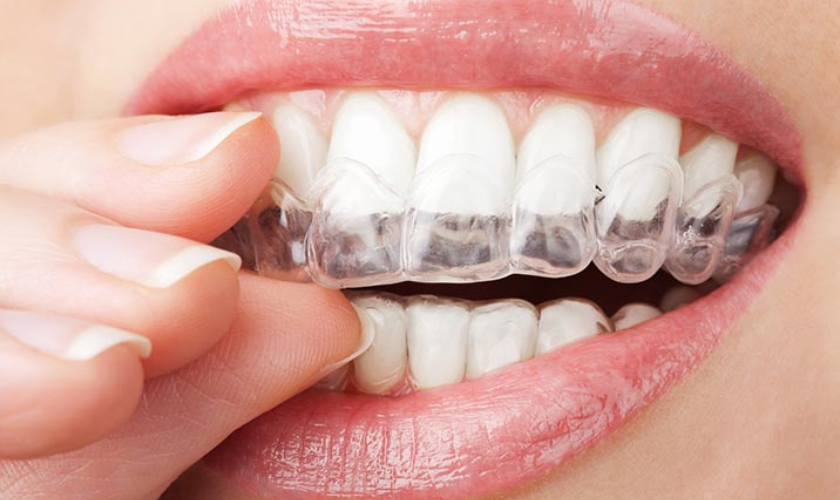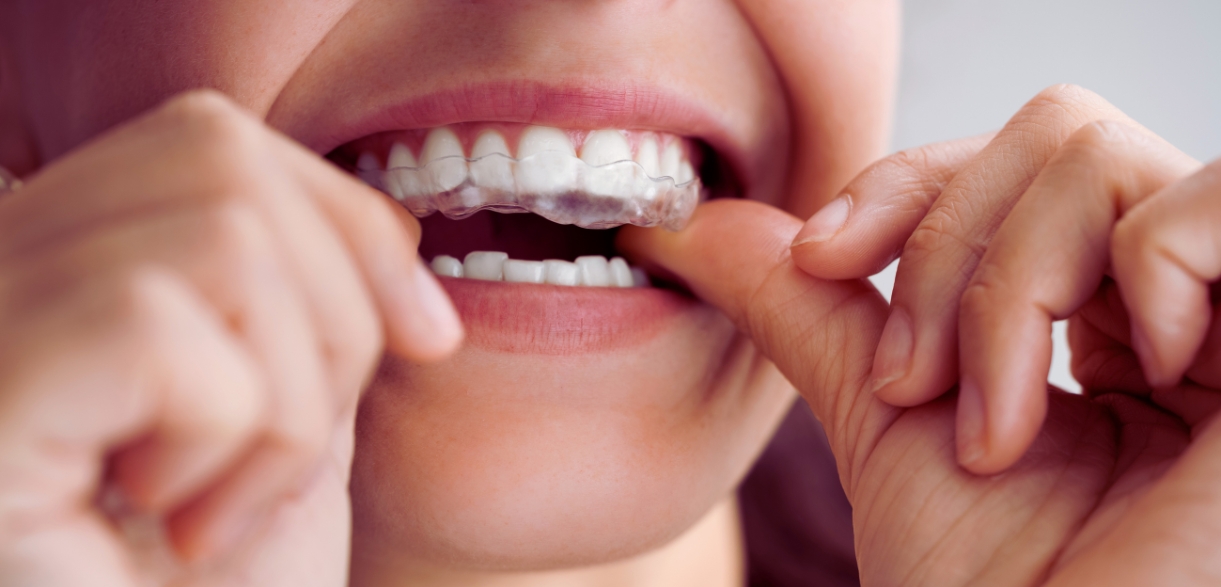$99 New Patient Special - Includes Exam, X-Ray and Basic Cleaning
Nightguards: Everything You Need to Know

Nightguards, also known as dental guards, mouthguards, nocturnal bite plates, or bite splints, are devices worn over the teeth during sleep to protect them from damage caused by teeth grinding (bruxism) and clenching. While they might seem like a small addition to your nighttime routine, nightguards play a crucial role in maintaining dental health and overall well-being. This blog will cover everything you need to know about nightguards, from their purpose and benefits to the types available and tips for proper usage and care.
Understanding Bruxism and Clenching
Before diving into the specifics of nightguards, it’s important to understand why they are needed. Bruxism is a condition characterized by the grinding, clenching, or gnashing of teeth, typically occurring during sleep. Clenching, on the other hand, involves tightly clamping the teeth together without the grinding motion. Both conditions can lead to a range of dental and health issues, including:
- Tooth Damage: Enamel wear, fractures, and even tooth loss can result from prolonged bruxism.
- Jaw Pain: The constant pressure can lead to temporomandibular joint (TMJ) disorders, causing pain and dysfunction in the jaw.
- Headaches: Many individuals with bruxism experience tension headaches due to the strain on jaw muscles.
- Sleep Disruption: The discomfort from grinding and clenching can lead to poor sleep quality, affecting overall health and daytime productivity.
The Role of Nightguards
Nightguards serve as a barrier between the upper and lower teeth, preventing direct contact and the resulting damage. By cushioning the teeth and distributing the force of clenching or grinding, they protect against wear and reduce muscle strain, thus alleviating pain and preventing further complications.
Types of Nightguards
There are several types of nightguards available, each with its own advantages and disadvantages. The three main categories are:
- Stock Nightguards:
- Description: These are pre-formed, ready-to-wear guards available over-the-counter.
- Pros: They are inexpensive and easily accessible.
- Cons: They often offer a poor fit, can be bulky, and may not provide adequate protection for severe bruxism.
- Boil-and-Bite Nightguards:
- Description: Made from thermoplastic material, these guards are softened in boiling water and then molded to the teeth by biting down.
- Pros: They offer a better fit than stock guards and are still relatively affordable.
- Cons: While customizable, they may not be as durable or comfortable as custom-made options.
- Custom-Fitted Nightguards:
- Description: These are made from dental impressions taken by a dentist, ensuring a perfect fit.
- Pros: They provide the highest level of comfort, protection, and durability.
- Cons: They are the most expensive option and require a visit to the dentist.
How to Choose the Right Nightguard
Selecting the appropriate nightguard depends on several factors, including the severity of your bruxism, your budget, and your comfort preferences. Here are some considerations to help you make an informed decision:
- Severity of Bruxism: If you have mild to moderate bruxism, a boil-and-bite nightguard might suffice. For severe cases, a custom-fitted nightguard is recommended.
- Comfort: Custom-fitted guards are typically more comfortable and less likely to cause irritation or gagging.
- Durability: Custom nightguards are made from high-quality materials designed to withstand prolonged use, making them more durable than over-the-counter options.
- Cost: While custom nightguards are more expensive upfront, their durability and effectiveness may offer better long-term value.
Benefits of Using a Nightguard
The advantages of incorporating a nightguard into your nightly routine are manifold:
- Tooth Protection: Prevents wear, fractures, and other damage to the teeth.
- Pain Relief: Reduces jaw pain, headaches, and discomfort associated with bruxism and TMJ disorders.
- Improved Sleep Quality: Alleviates discomfort, leading to better sleep and overall health.
- Prevention of Further Complications: Protects against the long-term effects of bruxism, such as severe dental issues and TMJ disorders.
Caring for Your Nightguard
Proper maintenance of your nightguard is essential to ensure its effectiveness and longevity. Here are some tips for care and hygiene:
- Regular Cleaning: Rinse your nightguard with cool water after each use. Brush it with a toothbrush and non-abrasive toothpaste or mild soap. Avoid using hot water, as it can warp the material.
- Deep Cleaning: Periodically, soak your nightguard in a denture cleaner or a mixture of water and vinegar to eliminate bacteria and stains.
- Storage: Store your nightguard in a ventilated case to prevent bacterial growth and protect it from damage.
- Check for Wear and Tear: Regularly inspect your nightguard for signs of wear and replace it if it becomes damaged or uncomfortable.
Potential Drawbacks and How to Overcome Them
While nightguards offer numerous benefits, some users may experience initial discomfort or other issues. Here are common concerns and solutions:
- Discomfort: It may take a few nights to get used to wearing a nightguard. If discomfort persists, consider consulting your dentist for adjustments.
- Gagging: Some individuals may experience a gag reflex, particularly with bulky guards. Custom-fitted nightguards are usually less bulky and more comfortable.
- Difficulty Breathing: Ensure the nightguard fits properly and does not obstruct airflow. Custom options generally provide a better fit and avoid this issue.
When to See a Dentist
If you suspect you have bruxism or if you’re experiencing any symptoms associated with teeth grinding or clenching, it’s important to consult a dentist. They can assess the severity of your condition, recommend the appropriate type of nightguard, and provide guidance on its use and care. Additionally, regular dental check-ups are crucial for monitoring the health of your teeth and ensuring your nightguard remains effective.
Conclusion
Nightguards are a simple yet highly effective solution for protecting your teeth and alleviating the symptoms of bruxism and clenching. By understanding the different types available, selecting the right one for your needs, and maintaining it properly, you can safeguard your dental health and improve your overall well-being. If you think you might benefit from a nightguard, don’t hesitate to consult your dentist and take the first step towards a more comfortable and restful night’s sleep.





